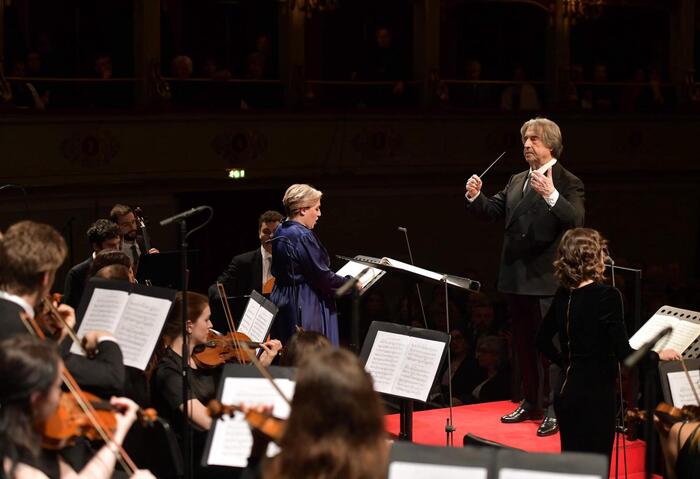The rock group Ilegales performs live for the program
Qué noche la de that year
on Spanish Television.
Jorge, the leader of the band, sings (“I have a problem, a sexual problem: I'm a bicycle”), plays the guitar, makes strange gestures and seems unhinged.
In the middle of an instrumental part, he widens his eyes and improvises, vocalizing carefully and emphatically: "Lady, if you don't like my face, change the channel."
It is 1987 and a spectator - the same does not matter a lady as a symphonic rock fanatic - fed up with Jorge Ilegal's face, does not have many options: either he resigns himself and trusts that the next song will like him better (it will be
Hello, mamonce
, about the irruption of a drug dealer in a bar) or goes to the other Spanish Television channel, in which they are probably broadcasting another musical program.
That abundance of musical content on television lasted little more than twenty years (those that go, approximately, from the end of the sixties to the beginning of the nineties) but it left many unforgettable names - from Paloma Chamorro to Moncho Alpuente - an invaluable archive and a question in the air that is renewed with each successful broadcast of
Cachitos de Hierro y Cromo
: why are there no longer programs like those, dedicated to “informing, training and entertaining”, in the words of Sandra Sutherland, from the
Pista Libre
program
(1982 -1985)?
In her thesis
When music disappeared from television
, the journalist Alicia Álvarez Vaquero (Tita Desustance in networks), indicates that musical programs lost their journalistic character with the arrival of private networks in 1990: then TVE began to compete for the audience and he was abandoning his vocation of public service, moving away from informative content.
If before there was at least one program occupied by numbers one, with the format of radio formulas in La Primera, and several dedicated to more risky proposals in La 2, the nineties were years during which the offer was reduced and was oriented towards the most commercial artists.
In addition, he returned to
playback
, when live sound had been one of the hallmarks of programs such as
The Golden Age
,
which sought to reproduce the experience of going to a concert hall, including drinks among the public.
It was almost a self-fulfilling prophecy: at the end of the decade, television executives claimed that a viewer who turns on the TV and finds someone singing immediately changes the channel.
As of the year 2000, everything changed (the first edition of
Big Brother
is broadcast
and domestic access to the Internet is spreading very quickly), so the theorists considered the stages of "pale television" and "neotelevision" described by Umberto to be overcome. Eco, and they invented the term
hypertelevision
to refer to the new paradigm.
The characteristic contents of hypertelevision are starred by their own events (and not by what happens in the outside world);
they turn the private into spectacle, and are those in which fiction and information can hardly be distinguished.
Just like in
Operación Triunfo
.
But record ratings for music talent shows didn't result in the production of new music shows.
Quite the contrary: everything that has nothing to do with music was used from them to, regardless of it, focus them on other disciplines, from cooking to sewing, through modeling and interior design).
Consequently, younger amateurs and professionals, such as journalist Patri Di Filippo (host and editor of
Mala Hierba
, on independent labels on Radio Primavera Sound) have grown up without any reference musical space.
Di Filippo lived in Italy until he was ten years old, that is, until 2005. “MTV there was not only non-paid, but it was also not a simple repository of American broadcasts.
Among all the programs that were broadcast, there is one that I remember with special affection:
Total Request Live
, a daily afternoon magazine in which they did interviews and short live shows with national and international artists, voting for the album of the week through SMS, and things like that.
Then I came to Spain and television was a wasteland in terms of musical content ”.
Today any audiovisual consumption is traversed by the logics and possibilities of the Internet.
Screenwriter and television critic Diana Aller is skeptical about a possible reappearance of music programs: “When the internet came, it created a natural outlet, a vent for all the styles that had been left out [of TV].
Now that television has been relegated to a medium for mature people, information, communication and musical opinion are adapted to the dozens of forms of
online
consumption
without missing musical content on TV ”.
And he continues: “Music, then in the hands of usurious record companies, suffered a significant neglect on television in the nineties and the 2000s and now, somehow, the Internet, with all the horror behind millionaire platforms, has become exacted a moral vengeance on that disparagement. "
Borja Terán, television critic and author of
Tele.
The 99 ingredients of television that leave their mark
agree that
playback
performances such
as those seen on
Música Sí
and
Música Uno
(the last two major commercial music promotion platforms on public television) have lost their reason for to be.
However, he does believe that music can continue to function "if it learns from more traditional television," explains Terán.
"If behind the musical number there is a scenic concept, if music serves as an excuse to go further, people do stay, because an event is created, which is the most important thing on television."
Terán vindicates the author's television of the seventies, a creative television "made by artists who dared to play, like Valerio Lazarov."
“Today artists are suspicious, they fear that they will be accused of doing strange things on a set and that is why many times in promotions the musicians do not even sing.
They are afraid of losing the audience's interest when, if properly planned, their performance could become great television entertainment, which is what inspires ”.
He also misses “the courage and sense of diversity of public television, which produced up to 15 music programs simultaneously;
one for each style ”.
In any case, Terán maintains that music will shine again on television when it is capable of creating an expectation equivalent to that generated by the MTV galas - which has managed to maintain its brand despite having become, in the new century, something more similar to a platform for youth reality programs.
“Television has to be more daring, it has to convince you that you are going to see a song for the first time like you've never seen it before.
Television, and this is not going to change even if the window or the platform changes, it consists of telling something with its own gaze, and for that it must recover the figure of the artistic director, so disappeared, it must trust creators who dare to tell stories with the imagination, naughty, corrosive, scathing stories ... like the spectators themselves.
If Eurovision continues to attract so much attention, it is because each performance is a proposal and we have to learn from that.
Artists like Lady Gaga know it and in their video clips or at the MTV gala they give that twist and enrich their songs so that they enter us through the eyes ”.
The phenomenal reception of
Cachitos de Hierro y Cromo
seems to
agree with
him.
Borja praises the La 2 program: “It works so well because it recovers and allows us to remember, but also to discover.
Furthermore, it incorporates an unprecedented point when projecting those labels that contextualize with the force of irony ”.
Cachitos
began to be broadcast at Christmas 2011 and since then it has become a phenomenon - it multiplies the usual audience of La 2 by eight - on which there is no unanimity.
While most viewers find his labels amusing, authoritative voices such as Jesús Ordovás or Diego Manrique (the brains behind many of the programs that
Cachitos
draws on and takes his cuts) have complained.
Ordovás, for example, has said of the program that "he chops up the best television archive in Spain to provoke giggles (...) trivializing whatever comes his way.
According to Manrique, “its impact blocks the possibility of making other hypothetical programs that explore music as an artistic expression” (Manrique).
In that same interview in 2018, the music critic Jesús Ordovás also stated: "It's the only thing I miss in my retirement years: decent programs on TVE."
All in all,
A country to listen to
, presented by Ariel Rot and currently on La 2, invites a certain optimism.
In this program, the Argentine rocker travels through Spain like a pilgrim, visiting several of the most significant musicians in each region.
Ariel cleverly wins over her guests, she is elegant and gives them prominence, sometimes she enriches other people's themes with her guitar and allows the dialogue between generations to be fluid;
for example, in the last episode you could see and hear Cala Vento (who released their first album in 2016) and Pau Riba (who did it in 1967).
But perhaps the survival of programs like this, with its road documentary format (there is no stage or set, musicians play, chat and reveal their intimacies in different landscapes), the great scope of the In-Edit Festival, dedicated to documentary cinema musical, or the success of
Cachitos
can be interpreted, paradoxically, as confirmation that music on television is paralyzed.
Between archival nostalgia and documentary film there is no room for live music, which is precisely the one that offers the most unexpected sensations and unusual moments.
These days C. Tangana promotes his new album.
Years ago he would have gone through more than one program to defend his new themes and talk about his work;
today it will only occupy a few seconds in the informational unit of culture of some newscast.
Perhaps it is a problem for those who, as Jorge Illegal sang in another verse of
Problema Sexual
in 1987, "like to watch television."
You can follow ICON on
,
,
, or subscribe here to the
Newsletter
.






/cloudfront-eu-central-1.images.arcpublishing.com/prisa/DDIFXEWCINDS3OJFP5HLMOUH2E.jpeg)
/cloudfront-eu-central-1.images.arcpublishing.com/prisa/E6GEBFB6SJHRTII4CEQHCSGQYY.jpg)






